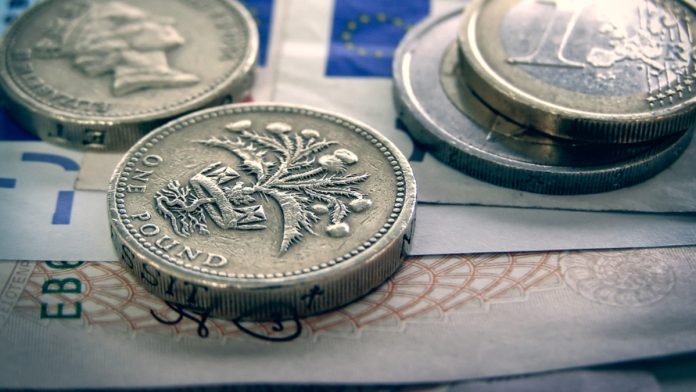- Pound (GBP) under pressure as Brexit reaches crunch stage
- UK labour market showing signs of strain
- Euro (EUR) dives on rising covid fears which is affecting sentiment
- Eurozone industrial production up next
The Pound Euro (GBP/EUR) exchange rate is extending losses for a second session. The pair settled down -0.4% in the previous session at €1.1010, around the low of the day. At 05:15 UTC, GBP/EUR trades -0.05% as it looks to target €1.10.
Brexit remains a key focus for the Pound. The EU have demanded movement from Britain over fisheries and fair competition, the two most contentious issues as talks reach a critical stage. Boris Johnson is due to meet with EC President Ursula von der Leyen in an attempt to move talks forward.
EU leaders will hold a summit on Thursday and Friday to assess progress. Prime Minister Boris has set the 15th October as a deadline by which the bare bones of a trade deal needs to be outlined.
The Pound is under pressure as the impact of covid on the labour marker becomes clearer. UK unemployment level jumped to 4.5% and the number of people being made redundant rose at the fastest rate since records began. The Office of National Statistics revealed that the number of people being made redundant doubled in the three months to August, jumping by 114,000 to 227,000.
The covid impact on the economy, combined with the scaling back of the government’s furlough scheme drove unemployment to its highest level in 5 years and this is just the beginning. With the furlough scheme due to end at the end of this month the picture is only likely to get worse.
The Euro traded higher versus the Pound in the previous session, but traded broadly lower versus its peers on disappointing vaccine news after Johnson & Johnson announced they were pausing all trials after a participant fell ill with an unexplained illness.
ZEW German economic Sentiment data slumped to 56.1 against forecasts of 73. The data revealed that investor sentiment in the Eurozone’s largest economy had dropped much faster than expected as covid and Brexit uncertainty clouded the outlook.
Today Eurozone industrial production is the only economic release on the Eurozone’s economic calendar.





